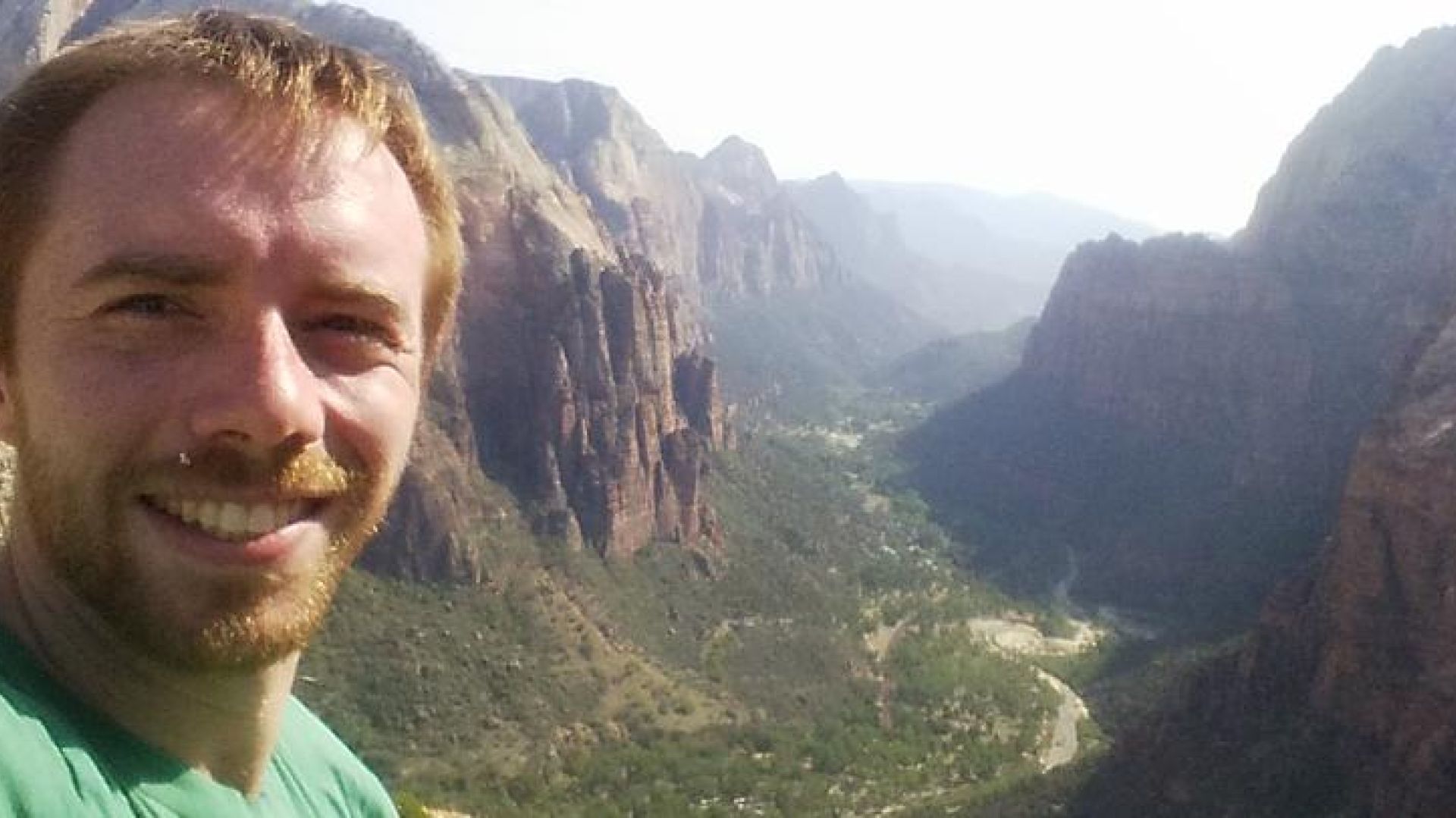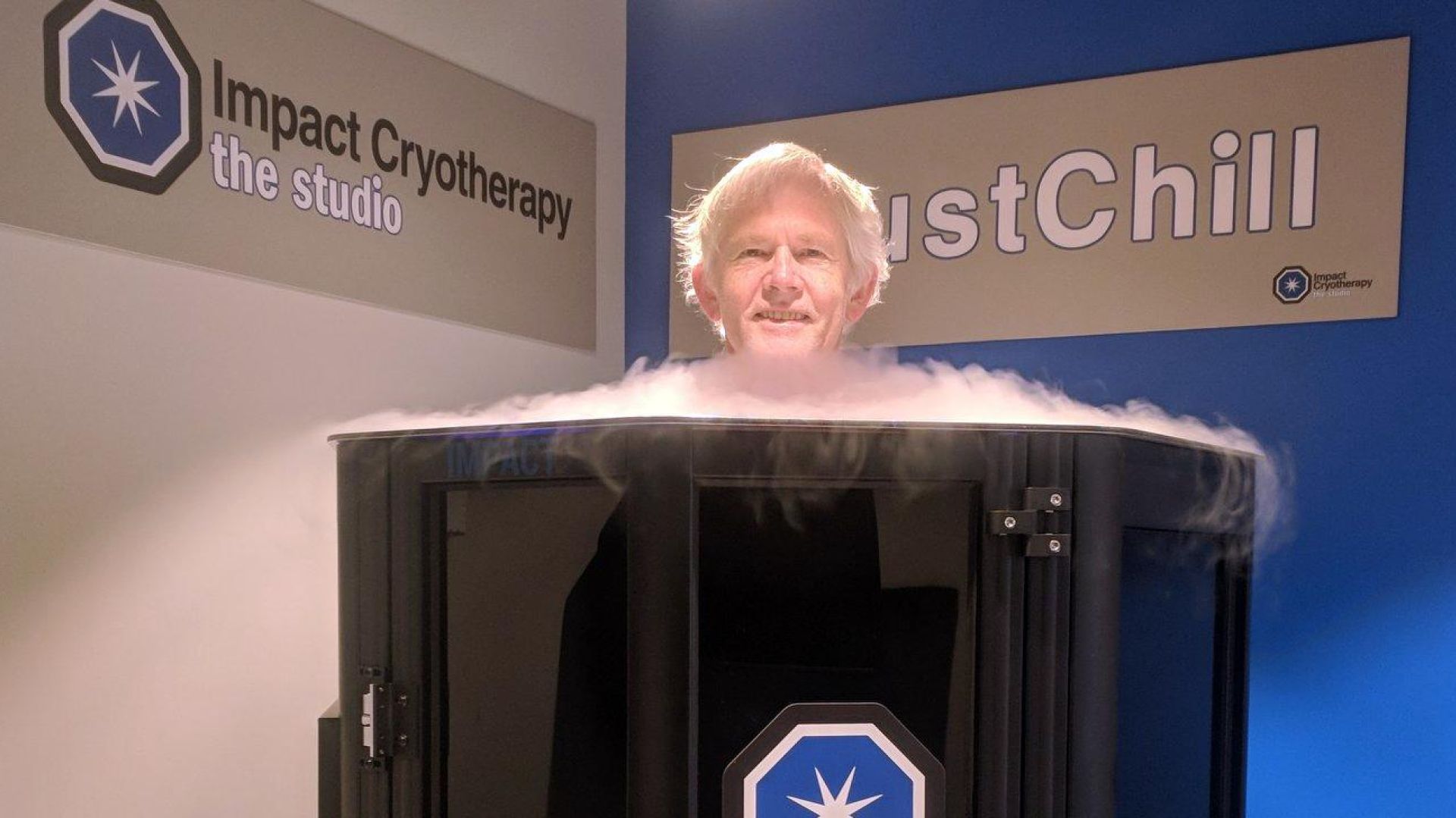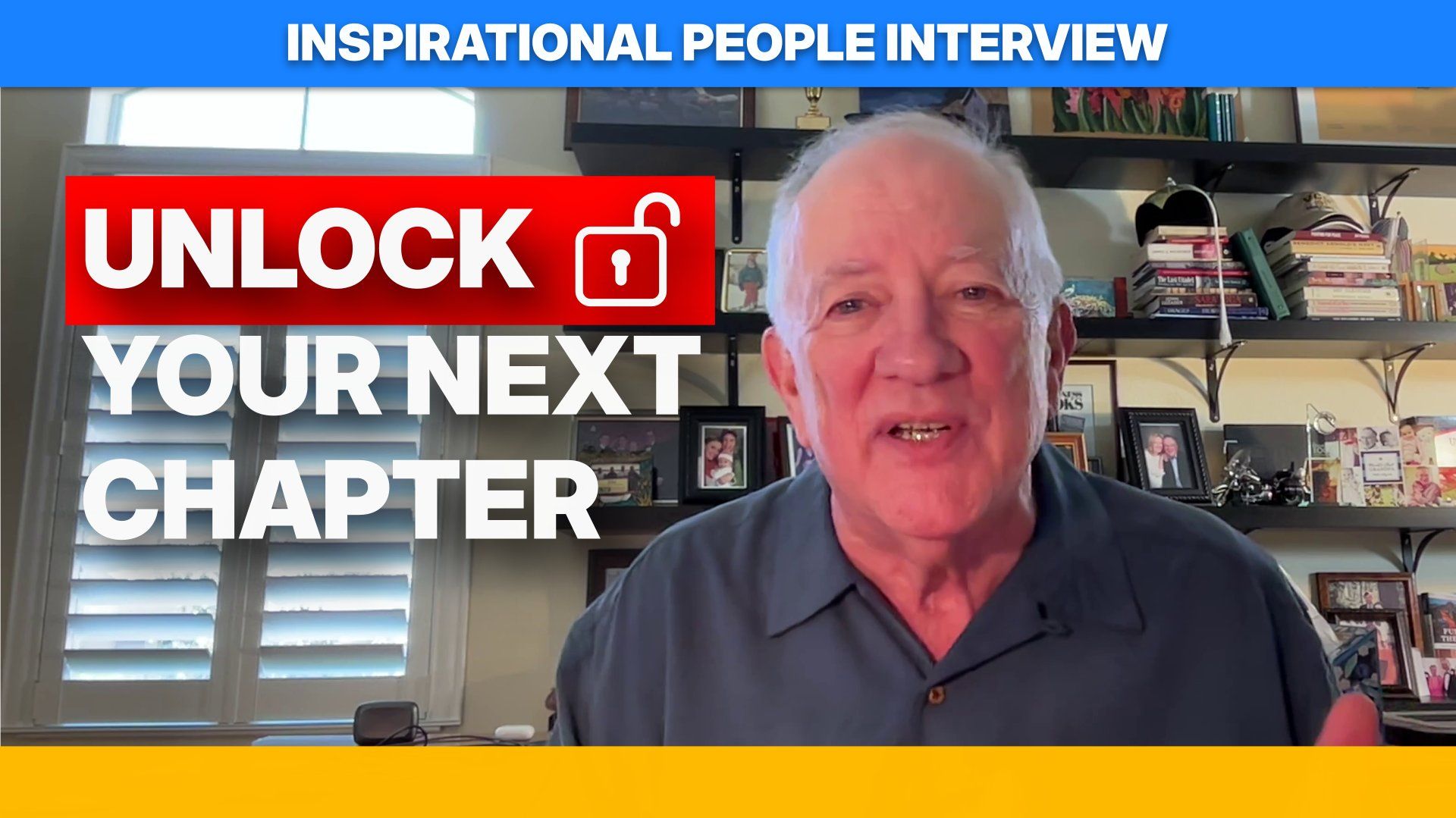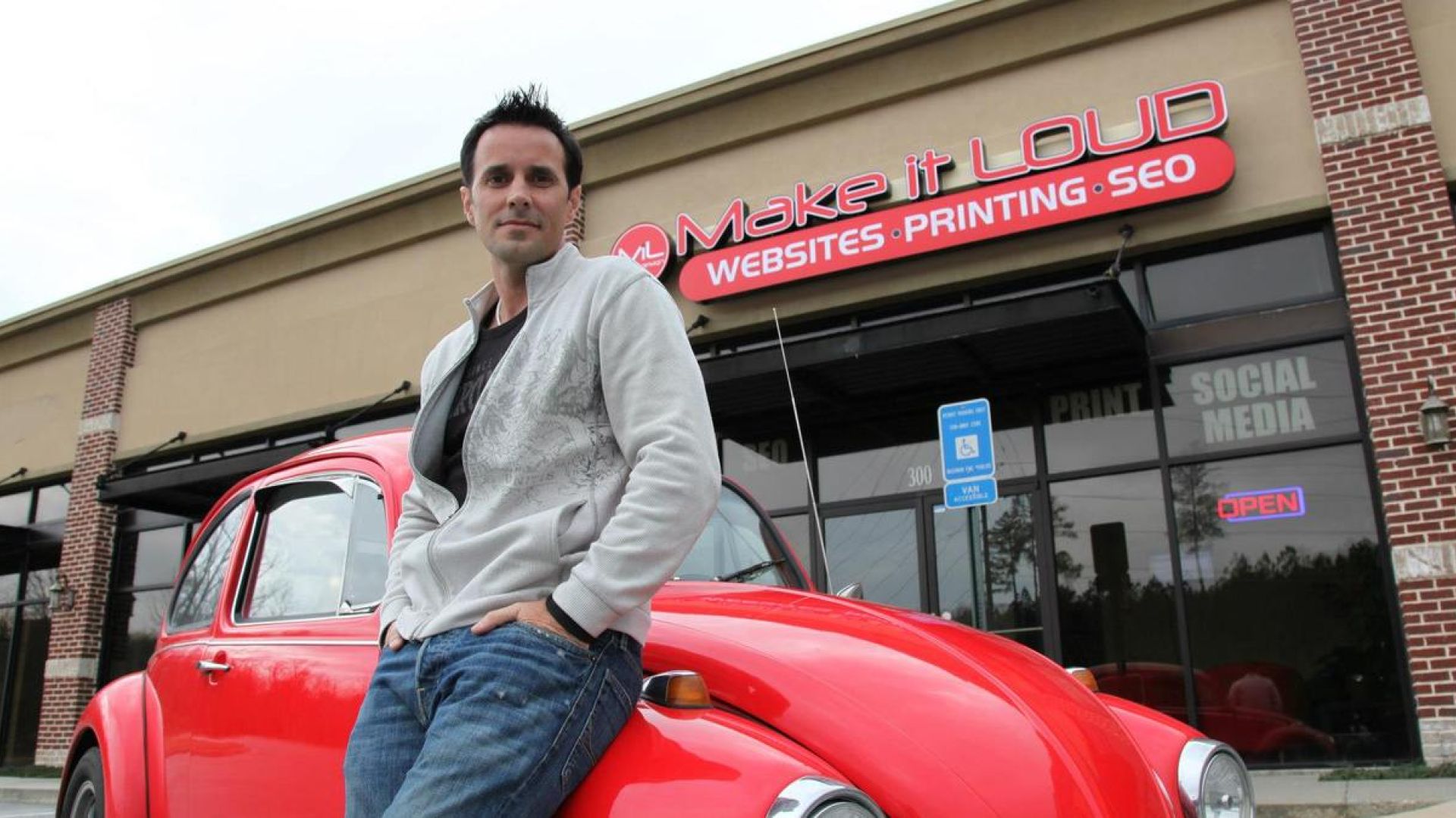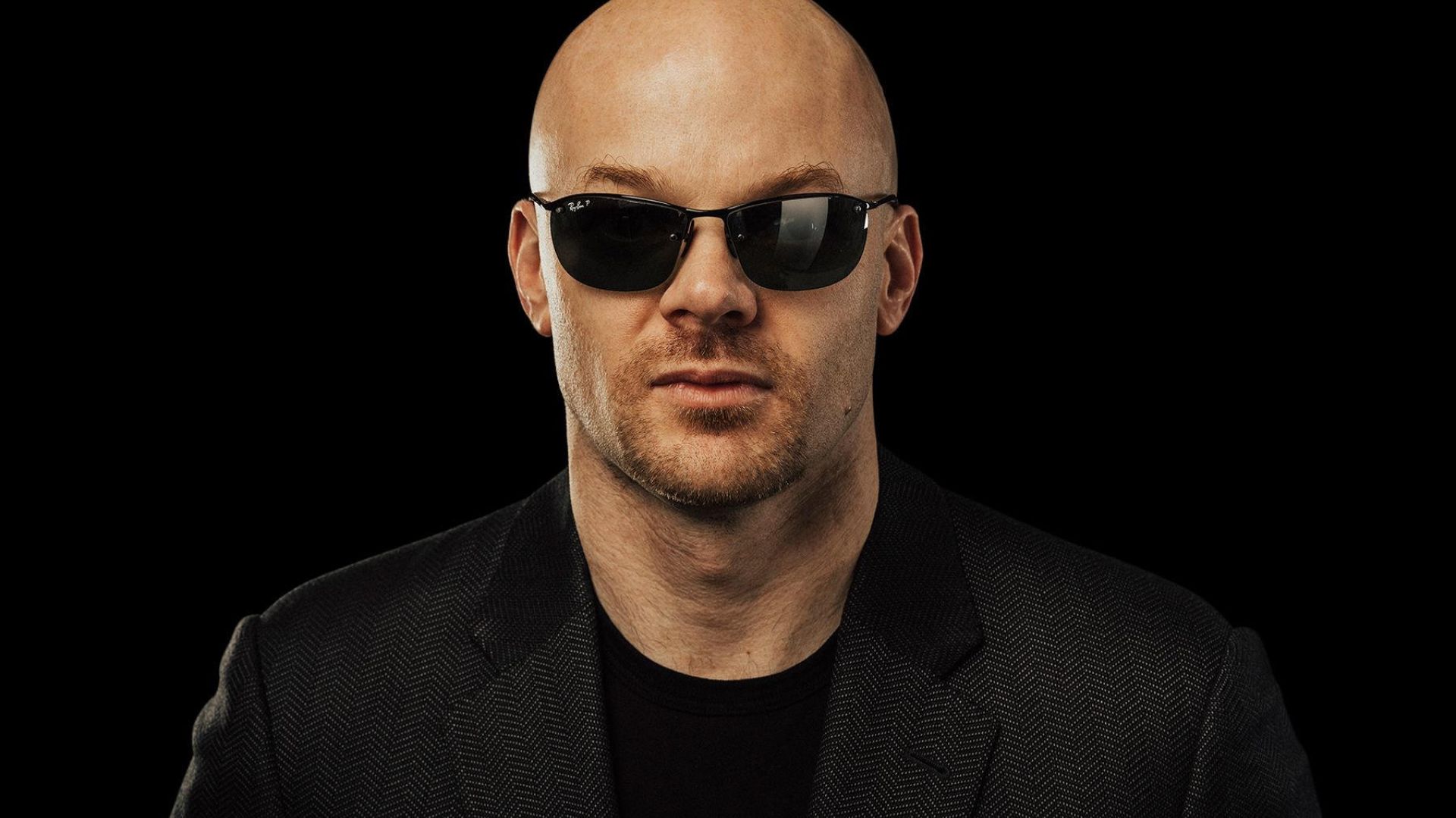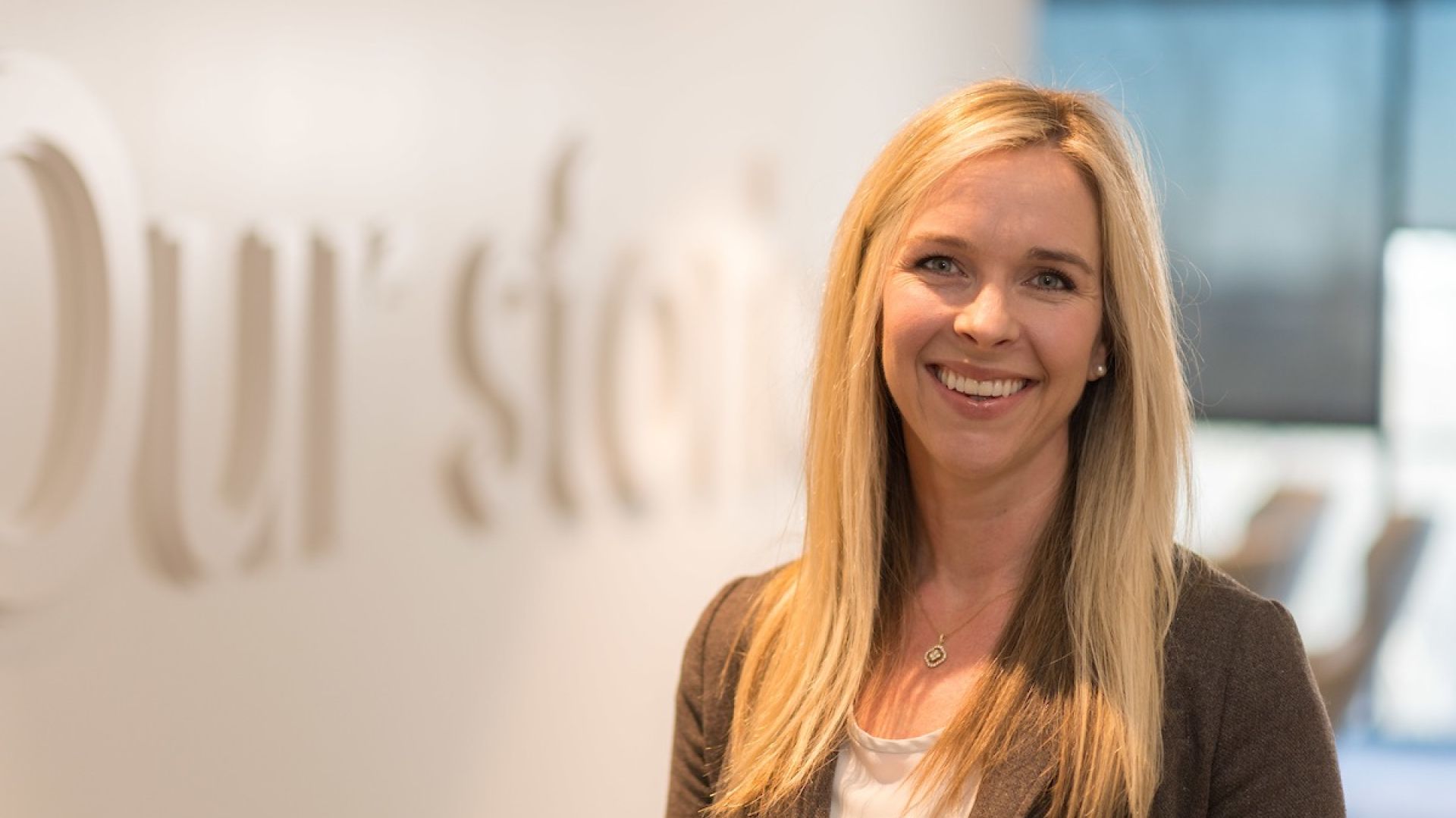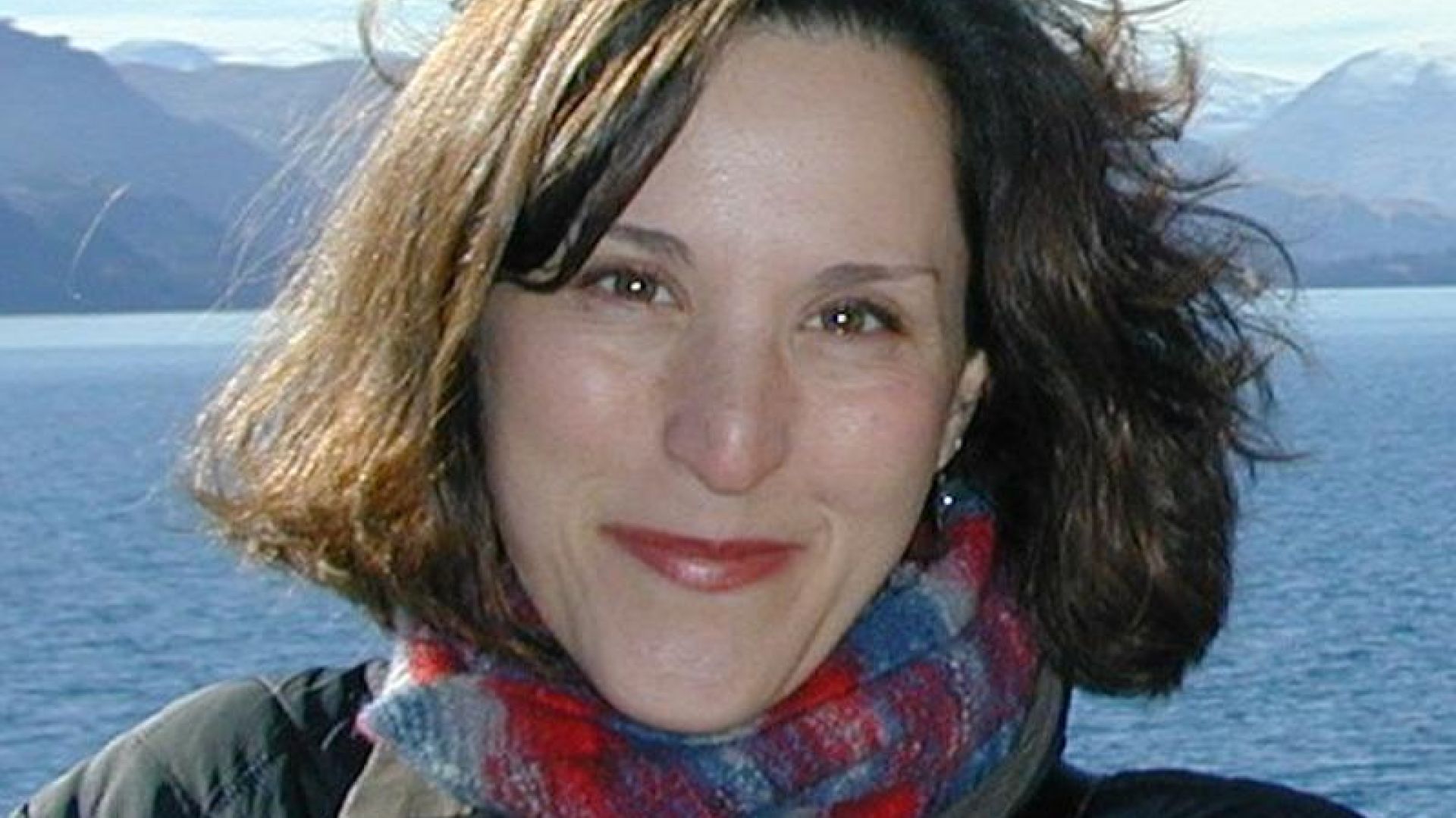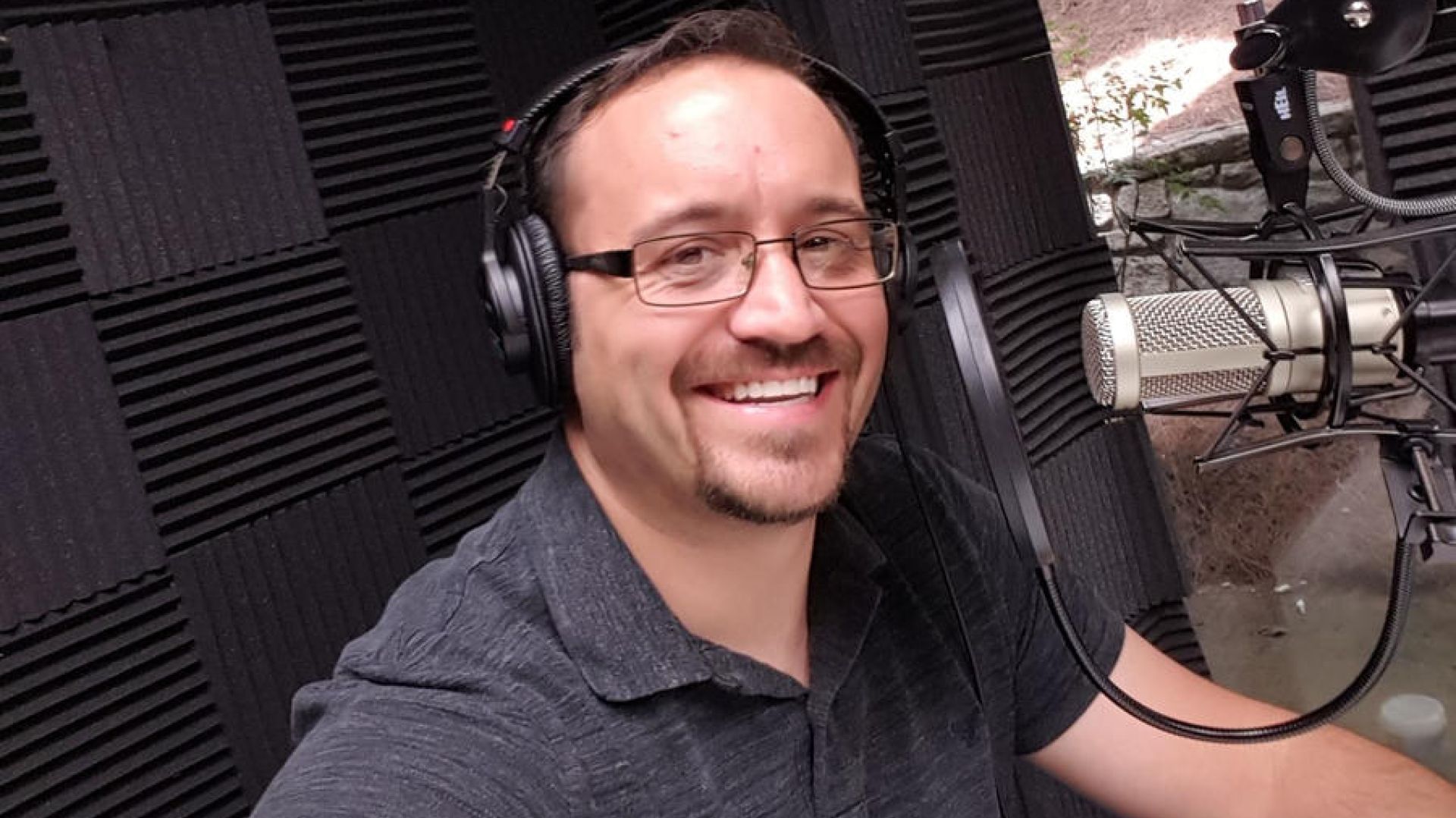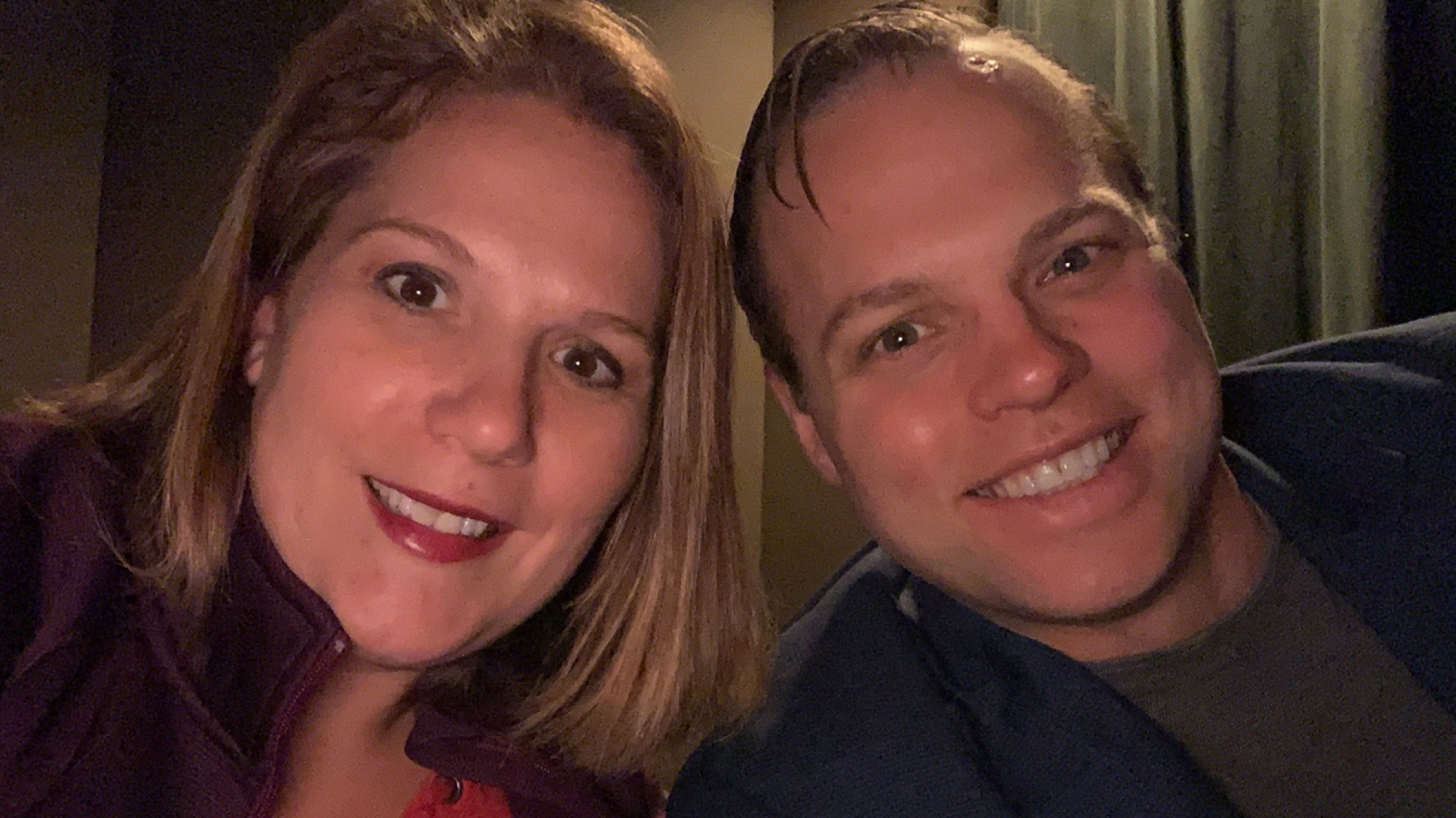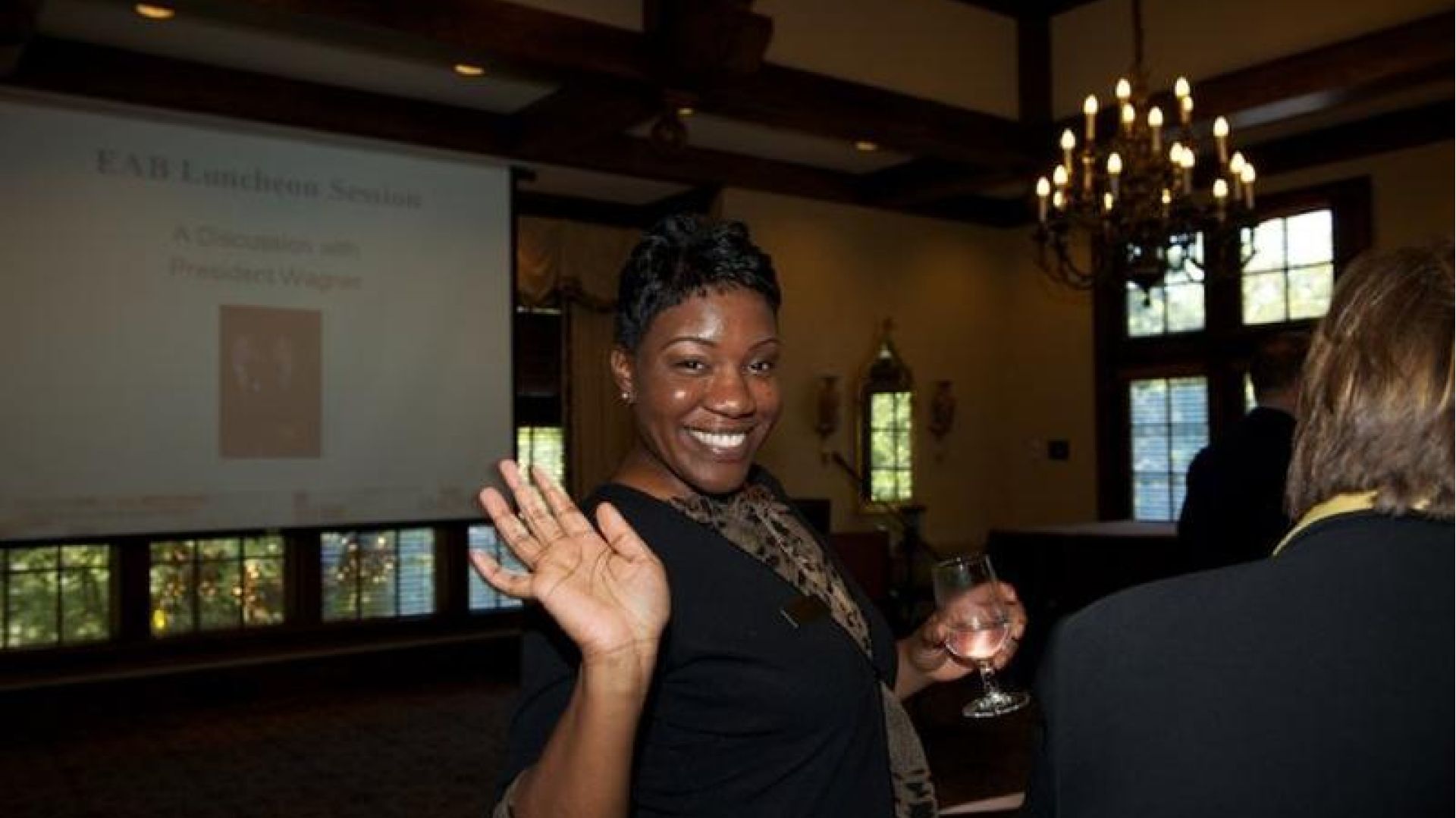
225 Combat Missions and The Framework That Changes Everything With Major General (Retired) Jack Briggs
Did you know the secret to a pilot's success isn't just skill?
It's actually the fear of letting people down. That pressure to be your best for the team—from the planners to the maintenance crew—can make or break a mission.

Life is Hard. Business is Challenging. The World is Uncertain.
Leaders, freelancers, and entrepreneurs: Get stories & systems, for navigating the challenges, in your inbox.
What if your biggest strength is the pressure you feel?
That’s what this video is about. It pulls back the curtain on high-stakes decision-making and reveals the surprising truth behind what it takes to perform under pressure.
In our conversation, you'll discover:
-
Why the "best decision" can still lead to a bad outcome.
-
How feeling guilty on the street corner is actually placating yourself, not helping.
-
The one key question that could change everything you think you know about yourself.
But here’s the biggest secret… what one thing do people in crisis need more than anything else? Watch the full inspirational people interview on the Share Life podcast to find out the unexpected answer.
P.S. If you've ever felt like you were just one or two catastrophic disasters away from losing everything, this one's for you.
- Watch: Click here to watch this discussion on YouTube directly, or click play on the embedded video below to begin streaming the interview. Click here to subscribe to my YouTube channel.
- Listen: Click here to listen on Spotify directly, or click play below to immediately begin streaming. You can also find this discussion on Pocket Casts, iTunes, Spotify, and wherever you listen to podcasts under the name Share Life: Systems and Stories to Live Better & Work Smarter or Jason Scott Montoya.
Connect With Jack Briggs
- Connect with Jack | Website - LinkedIn - Voices to Connect Bio Page for Jack
- Jack's Book | Meeting Homelessness with Hope: One Community's Response
FAQ
What does a pilot do when a non-combatant appears while they're guiding a weapon? Pilots must make a split-second, moral decision to divert the weapon away from the non-combatant, even if it means not attacking the target. (00:02) What are the physical and mental challenges of being a fighter pilot? It's a very athletic activity that requires physical strength and resilience due to the G-force pressure. It also demands very fast reaction times, which slow down as a person ages. (05:31) What is it like to fly combat missions? It's a mix of "absolute boredom" and "absolute intense action." During intense moments, training takes over, which helps control emotions and allows the pilot to rely on their skills and teamwork. (07:52) What emotions do pilots feel during a mission? The biggest emotion is the fear of letting others down. Pilots feel pressure to perform their best because the entire team, from planners to maintenance crews, is counting on them to successfully complete the mission. (08:50) How do you reconcile situations where a moral decision in combat doesn't work out and causes harm? You must focus on your motivation and the decision you made at the time, not the outcome. A mistake is different from a crime. If the decision was principled, and you were humble enough to ask for help, you can justify it in your heart, even if the outcome was affected by things you couldn't control. (12:02) What are the "laws of armed conflict?" These are international laws that determine what constitutes a legal target in war, such as combatants or those who supply the enemy. Pilots have a moral and legal responsibility not to attack targets that are not considered legal. (14:04) What is the role of the Supreme Allied Commander, Europe (SACEUR)? The SACEUR is the military general in charge of NATO's military arm. The executive officer to the SACEUR acts as a personal chief of staff, helping to vet policies and coordinate meetings with heads of state. (18:30) What is a good way to interact with a person experiencing homelessness? Instead of giving money, which may only assuage your own guilt and not help their long-term situation, simply ask for their name. This creates a moment of equality and a personal transaction that acknowledges their worth as a person. (31:12) Why is it important to use diplomacy and cultural intelligence when working with other nations? Different cultures have different mindsets, and you can't just expect them to mirror your perspective. You have to be willing to listen, talk, and have difficult conversations constructively. This helps you integrate unique strengths and build trust. (23:23) What are the four types of integrity needed to live a whole and integrated life? The four types of integrity are spiritual, physical, emotional, and relational. If any one of these is lacking, a person is not whole, which can negatively affect their life. (39:33) How does mentoring play a role in personal growth? Mentoring is a two-way street. A healthy mentor-mentee relationship involves both parties learning from each other, which helps to build relational growth and accountability. (43:25) Why is it important to challenge your own core beliefs? Asking yourself, "What if I am radically wrong?" can lead to introspection and personal growth. By objectively examining your beliefs, you may find you were wrong about something, which can lead you to become more compassionate and understanding. (51:20)
Podcast Episode Transcript
Jason Montoya (00:00) How much do you have to make that moral? Jack Briggs (00:02) It's a split-second decision. You could be guiding a weapon into a target, and all of a sudden a non-combatant comes on the screen. You have to divert the weapon away because it's now not something that you should do. Jason Montoya (00:14) Welcome to an inspirational people interview on the ShareLive podcast. I'm Jason Scott-Matoia, and today I'm speaking with Air Force Major General (retired) Jack Briggs, a specialist in high-stakes decision-making and crisis management. Jack, say hello. Jack Briggs (00:28) Hello, and Jason, thanks a lot for this. I've been looking forward to it. Jason Montoya (00:32) Jack is a client, and he's also a referral from a mutual connection, Voices to Connect. They help public speakers like Jack give their vision a voice. Jack has spent three decades as a senior military leader in the Air Force. He served as a fighter pilot in combat, flying 225 combat missions across multiple operations, including Desert Storm, Enduring Freedom, and Iraqi Freedom. His leadership expanded to commanding squadrons and wings, and he ultimately achieved the rank of Major General. His roles included NATO staff positions, serving as executive officer to the Supreme Allied Commander, Europe, and leading the 455th Air Expeditionary Wing at Bagram Airfield in Afghanistan, where he oversaw operations for thousands of warfighters. Jack now consults with organizational leaders in complex situations and critical environments. He works with government, executive, university, and non-profit leaders to make the right choices when no easy answers exist. Jack, tell us who you are in your own words. Where do you come from? Tell us about your story. Jack Briggs (01:32) Well, thank you very much for the opportunity to be with you and for the help that you've given me as I've ventured into this area of trying to help other people deal with those hardest decisions that they have to make. I grew up in a great family, had a great childhood. My father was in the Army. We lived in a couple of different places, but I finished out in Northern California before I went to the Air Force Academy, where I graduated. Then I became a pilot in the Air Force and spent my 30-plus years advancing in rank and responsibility. Jason Montoya (02:10) I have to pause you real quick. Your dad was in the Army. What happened there? Why'd you switch over? Jack Briggs (02:15) When I was eight years old, I saw the Thunderbirds fly. I asked my dad what he thought, and he said, "That's a great idea if that's what you'd like to do. Don't turn the Army down, though." I didn't want to be a professional camper, which is kind of what the Army does. I don't mean that disrespectfully; the Army is the bread and butter of the nation's defense. But I wanted to be a pilot. I wanted to be a fighter pilot from the time I was a very young person, so I pointed myself toward getting into the Air Force Academy. I went to the Air Force Academy, spent my time in the Air Force, and loved every opportunity. We lived in seven different overseas locations, and all of my kids were born overseas. It was an incredible experience. When I retired, I was looking for something to do and wanted to do something different. I ended up getting appointed in the direction of higher education and was hired at New York University. I was the Vice President for Global Resiliency and Security for NYU's 15 campuses in 11 countries at the time. I did take a short break to help out with a gospel rescue mission in Colorado Springs. My wife, my family, and I prayerfully considered it, and we thought it was the right thing to do. So I took about a four-year sabbatical from higher education to be the CEO of that rescue mission. As that was winding down, I had the opportunity to join the University of Colorado in Boulder as the Associate Vice Chancellor for Public Safety Operations, and that's where I am today. Jason Montoya (04:19) Let's tease some of these pieces out. You've flown 225 combat missions. Tell us about the first time you ever got in a jet. What was that like? I mean, our experience as laymen is watching Tom Cruise in the back of an F-16 or something. Jack Briggs (04:33) It was a boyhood dream come true, and the combination of excitement, adrenaline, and dread was just unmatched. From that time on, I loved every minute of it. Jason Montoya (04:46) How old were you when you first got to fly? Jack Briggs (04:49) I would have been 21. I had graduated from the Air Force Academy and went to pilot training. The Air Force puts you in jets right off the bat, so I was in jets by the time I was 21. Jason Montoya (04:53) I went to Parris Island, the Marine Corps' training facility, in 2006 or 2007. They have a couple of fighter jets, so they took us to the hangar, and we got to see the jets in person and talk to the pilots. They said the fighter pilots are the young ones, just in their early 20s. What is it about being young that's unique to being a fighter pilot? What makes it not viable as you get older? Jack Briggs (05:31) It's a very athletic activity. You need some physical resilience and strength to fly a fighter. You're put under a lot of physical pressure. The other thing is reaction time. It's a very fast reaction. As you get older, your reactions slow down a little bit. Fortunately, you compensate with experience. But at some point, that balance gets out of alignment, and you're no longer at your best when you're flying. It really is a young person's game. Jason Montoya (06:19) What span of time did these 225 missions take place in? Jack Briggs (06:24) I started off in Desert Storm in 1991, and my last combat sortie was in 2011, so it was 20 years. Jason Montoya (06:32) Did the type of missions you did change as you got older? Jack Briggs (06:39) The technology advanced significantly, but the concepts of what you're doing did not. You had a very specific mission, either to support the Army or to do a deep-strike activity to accomplish a mission. All of that is based on teamwork, trust between your fellow pilots, the maintenance people, and the folks observing the battlefield. That never changes. The technology gets slicker, but it takes courage, fortitude, trust, and integrity because you're never alone. You're always relying on the team. Jason Montoya (07:34) What is it like as a pilot? Is it mostly cruise control, or is it pretty intense the whole time? Jack Briggs (07:52) There are times of absolute boredom that surround absolute intense action. When you're in the middle of it, your training kicks in. We train and train because, in those environments, you have to be ready and can't let your emotions get the better of you. You have to rely on your training, which means you have to do stuff before the events happen so that when something does happen, your training takes over. Jason Montoya (08:41) What are some of the emotions that you feel? Is it fear, excitement, or dread? Jack Briggs (08:50) The biggest one is you don't want to let others down. You are really focused on doing your very best because you may be the only person doing that particular role that everybody else is counting on. As the fighter pilot, if we were attacking something deep in enemy territory, the maintenance people, the administrative people, the people that got us gas, the weapon loaders, and the mission planners are all doing their part. In the very end, it's me making sure that the target gets attacked correctly and legally. All that pressure comes on to you. You have to trust that all those other folks have done their very best so that when it's your time, you're going to do your very best as part of the team. So the weight on you is that you don't want to let others down. Jason Montoya (09:48) You're saying that if you act out of that emotional desire, you might actually let them down if you don't rely on your training. Is that what you're saying? Jack Briggs (10:06) Correct. You can actually end up failing the mission if you don't stick to the plan. Jason Montoya (10:13) When you're going on a mission, how much do you know about the mission, the target, and why you're attacking it, versus what's withheld from you? Jack Briggs (10:27) It would be incredibly rare for someone not to know the reason they were attacking a target. Part of that is because every target gets vetted for legal purposes. Is it a lawful target? We are not going after something that is illegal, and you, as the pilot, need to understand your parameters because there are times when you could see the target, but there were civilians in the area. You had to make a judgment call and say, "I'm not going to attack the target." Even though all this work has happened, you have a legal and moral responsibility not to attack. You need to know what the targets are and why they are a valid target so that you don't do something that's immoral. Jason Montoya (11:25) And how much time do you have to make that moral decision? Jack Briggs (11:30) It's a split-second call. You could be guiding a weapon into a target, and all of a sudden, a non-combatant comes into the screen, and you have to divert the weapon away. Jason Montoya (11:46) How do you reconcile that dynamic? I imagine you're in situations where you have to make that decision and you're able to divert it, and other times where there's not enough time. Jack Briggs (12:02) You have to look at your motivation. If you are trying to do something just and a mistake happens, a mistake is different from a crime. It's something that happens due to a variety of different circumstances. The outcomes are often affected by things you can't control. Just like when you're making decisions in a crisis, the focus should be on, "Did I make the right decision at the time?" There are three things that help you make the best decision you can at the time. The first is, am I making the decision based on principles? Am I not trying to make a decision based on emotion? The second thing is, am I humble enough to ask people for help? Do I bring others into the conversation if I can that will help me make the best principled decision? But the third thing is I have to be decisive. Making no decision is typically the worst thing. Even if you err in your decision, if it was principled, and you were humble enough to ask for help if you could, and you make that decisive decision, that is more defendable in your own heart, let alone legally. Jason Montoya (13:57) You mentioned the term "legally." Where does that come from, and what makes it legal or not? Jack Briggs (14:04) There are international laws of armed conflict that describe what legal targets are. Typically, they are combatants who are engaged in combat or are adjacent to combat, meaning they supply the enemy. These are all very well-established international norms for what is considered just and what is considered legal. The second-guessing of those in a legal form may be valid, but you would always go back to, "Was it a legal decision when you made it?" Jason Montoya (15:03) What would you say to someone who says, "You're in a war, you're fighting each other. Why should you follow any legal guidelines? What's the point?" Jack Briggs (15:03) I believe that there is a limit to what is justified in war. I personally believe that non-combatants are not targets. In today's warfare, that is difficult because you have an enemy that is interspersed with civilians. You have technology that can fail. There's a lot of factors. So you want a structure that outlines what is legal and just because you would not want the enemy to have no limits on attacking civilians. When they attack civilians, that's terrorism. That's not warfare; that's criminal behavior. Unfortunately, you will have collateral damage, but it can't be your primary target. Jason Montoya (15:50) What are your thoughts on those laws and norms deteriorating pretty rapidly? Jack Briggs (16:03) Anytime you get into armed conflict with another state, organization, or individual, something has failed before you got there. The norms of diplomacy and conflict resolution have failed, so warfare should be your last resort. You should be looking at diplomatic, informational, and economic levers of power to try to avoid conflict. As these norms deteriorate, we lower the bar of where conflict seems to be the right answer, which is unfortunate. The diplomats should be at the forefront, not the military. Jason Montoya (16:49) What were some of your big takeaways from all the combat missions that you carried into the next stage of your career? Jack Briggs (17:00) Teamwork and the fact that you can rely on people. If you give them the opportunity and the training, people will respond to that. No one wakes up in the morning to be a jerk. They typically wake up and are like, "What can I do today that's going to be good?" Jason Montoya (17:20) What was it like to be on the other side, working with the pilot, not being the pilot? How did that experience play out for you? Jack Briggs (17:33) It required absolute trust in those young 22-year-olds who are now responsible, and trust in the training they've had. Not giving them too much responsibility at first, but knowing that if they're put in those situations, they've been trained for them. If they're not trained for them, they shouldn't be in them. The responsibility changes as a commander to make sure that the teamwork and the reviews of the reality are all put together. Jason Montoya (18:22) As a commander, you were the executive officer to the Supreme Allied Commander of Europe. What in the world is that? Jack Briggs (18:30) The Supreme Allied Commander of Europe, or SACEUR, is the military general responsible for NATO. It has a political arm and a military arm. The very first SACEUR was General Eisenhower. My job as the executive officer was to be the personal chief of staff. I made sure his aides, travel policy, and all of that got vetted. The SACEUR is equivalent to a head of state in terms of meeting with individuals in Europe. It was a great but very challenging time. Jason Montoya (19:44) What would you want people to know about NATO itself and its role that maybe is underappreciated or people don't know? Jack Briggs (19:54) NATO is a wonder. It's brought together nations that have been in conflict with each other before and continue to have relationships that are sometimes awkward. But under the banner of NATO, we cooperate and can achieve many things. I consider it to be an absolute positive international organization for collaboration and for presenting a united front. Jason Montoya (20:58) Were you actually in Afghanistan when you were the 455th Air Expeditionary Wing at Bagram? Jack Briggs (21:10) Yes. I had multiple roles. I was a pilot, so I flew combat missions just like the other pilots. Thankfully, I was more experienced, so I had experience to rely on. But my role was to have oversight of safety and security, mission accomplishment, and logistical support for essentially the northern part of Afghanistan. Bagram was the key base out of which all these operations would occur. My job was to make sure that we had the platform of Bagram and that it was safe and secure. Jason Montoya (22:20) What years were you in Afghanistan? Jack Briggs (22:33) 2010 to 2011. Jason Montoya (22:34) What came after Afghanistan? Jack Briggs (22:39) I went back to the Air Force and went to Winnipeg, Canada. I was the Deputy Commander for the Canadian NORAD Region, the North American Aerospace Defense Command. It's the command that defends the skies over Canada and the United States. We have this wonderful relationship with Canada when it comes to NORAD. In Canada, a Canadian general officer is responsible for the airspace, but the deputy is an American. In the United States, the commander of the area is an American general, and their deputy is a Canadian. So we kind of trade. Jason Montoya (23:23) You've interacted with all these different countries and had to work with them and understand where they're coming from. What leadership insight did that give you? Jack Briggs (23:49) I think you have to have some cultural intelligence when you work with different cultures. You can't just mirror what you think a Western or US perspective is on someone else. You have to listen, talk, and be able to understand where they're coming from because they may have very different mindsets about basic things, like individual versus collective rights. The US has a lot of resources, and some of the nations we worked with had almost none. You have to come to them where they're at and integrate their unique strengths into the team so that they are contributors. You also have to be willing to have harder, constructive conversations because if you're condescending or dismissive, you'll undermine the relationship. Jason Montoya (25:30) Why didn't you just retire and go live in Hawaii? Jack Briggs (25:41) It was super clear that my wife was not ready for me to just hang around the house. She had spent five years on deployments with me and had three kids. She's a very independent, super awesome lady. I don't think she would want me hanging around the house too much. She's got her own "feng shui" that she does, and she's great at it. She's the best logistician I ever knew. We've moved 21 times, and she's been in charge of every move. I think I would have disrupted the feng shui in her house if I'd just been hanging around. I started looking around and was really attracted to the concept of higher education. I have three master's degrees and a doctorate. My degrees are in international relations, international economics, and strategic studies. My doctorate is in education, leadership, and innovation. Jason Montoya (27:19) The rescue mission was the first thing you did after the military? Jack Briggs (27:19) No, I went to higher education first. I went to New York University for about four years, and then I got a phone call. I had been on the board of directors of this rescue mission in Colorado Springs in my last military assignment. The CEO wanted to retire and was looking for a new one. The board of directors called me, and my wife and I prayerfully considered it and thought it was something that God was asking me to do. So we went back to Colorado Springs from New York, and I was the CEO of the rescue mission for about four years. Jason Montoya (28:07) You've moved 21 times with three kids. What advice do you have for parents who move their kids a lot? Jack Briggs (28:07) It's rough. Their therapists say they're resilient, and they are. All three of them are incredibly resilient and self-initiators. They can handle themselves, and I think part of that was because of these experiences. But there are certainly downsides to it. I'm not trying to downplay that at all. They had a hard time keeping friends because they changed every two or three years, sometimes even faster than that. Their experience was enriching, but it was also very, very challenging, and that's a sacrifice that military families and children bear that is often not understood. Jason Montoya (29:02) You went to this rescue mission. Is this related to the homelessness issues you discuss in your book? Jack Briggs (29:07) Yes. I wrote a book called, Meeting Homelessness with Hope. When I was on the board and then the CEO, it really became a passion for me to understand the causes. If you meet a thousand homeless people, you've met a thousand reasons. They may have a mental health context, or it could be about poverty or addiction, but how they got into those situations are all individual stories. To say that we're going to "end homelessness" is a little Pollyannaish. The first thing is to try to keep them from going homeless in the first place, and that's the best bet. Sometimes that looks like government assistance at the inspirational level, not at the dependency level, because once they go homeless, it's a different game. We have to pour a lot more resources into it. Once that happens, there are three core things you need to address. Can you guess what the number one question I would get as the CEO of the rescue mission was? Jason Montoya (31:11) Why can't they get a job? Jack Briggs (31:12) That is one of them. But the number one question was, "Hey Jack, when I pull up to the stoplight and someone has a sign, what am I supposed to do?" My answer to them was, "I understand why you're asking that. That question is driven by guilt. You see someone you perceive to have less than you, and you feel compassion, so you ask what to do. The truth is, when you're at that light, regardless of what you do, you are not going to change their long-term situation. You're doing something to assuage your own guilt. And that's okay. Just realize where it's coming from. What you can do is roll your window down and ask them their name. They might give you a street name like 'Caveman' or 'Cowboy.' Say, 'No, my name's Jack. What's your name?' More often than not, they'll tell you their real name. For the most part, people on the street never get asked their name. They haven't said their real name out loud in years. This is the first step. It's a transaction because people on the street feel out of control. Suddenly, you're giving them the opportunity to be in control of something. You've created a moment of equality with someone who rarely feels like they are equal to anything. That's a very powerful moment. The second core thing is incentivization. You get more of what you incentivize. If you give somebody five bucks on the street, and they get 50 dollars that day, the next morning, what are they going to do? Go right back to that street corner. Instead, they should go to a service provider like a rescue mission, where they can get real help for their mental health, addiction, or abuse. The third is partnerships. There is no single service provider that can solve all the problems. It comes from a variety of different places. As a service provider, you need to empower other organizations to work with you. A rescue mission is often gospel-oriented, and a lot of organizations don't like the gospel part. So I would meet with people trying to support homeless people and ask them, "Do you think people have worth?" One hundred percent of the time, they say yes. I would say, "I agree. Now we can debate on where we think that worth comes from. I believe it comes from the fact that the creator of the universe chose to die for just you, and the same for that homeless person. I have a pretty high bar for this. You may have another reason you believe they have worth, and I will not challenge that. Instead, let's just agree that they have worth. Can we do something together for someone who has worth?" Almost always, they would say, "When you phrase it that way, I think we can try." When we try together, guess what happens? They look at us and say, "You know what? You gospel people aren't so bad." And I say to them, "You're not so bad either. Let's see more of this." Jason Montoya (36:51) Tell people about the book. Jack Briggs (37:02) It's called Meeting Homelessness with Hope. It's on Amazon. It describes these things and is truthful about what seems to work and what doesn't. There are a lot of stories that are just not true. They're driven by virtues like empathy, but they don't help the way people think they would because they don't understand the dynamic of someone in extreme poverty or addiction. Jason Montoya (37:46) How do we help people see their inner homeless person? Jack Briggs (37:55) It's true that in a lot of cases, you are one or two catastrophic disasters away from not having anything. Having that moment of equality with someone on the street is myth-shattering. I have seen it happen more than you can imagine. Someone on the street acting a little crazy, loud, or rocking back and forth. I look at them in the eye and say, "What's your name?" And all of that disappears. Their tone, demeanor, and willingness to say something to you that's not crazy change because all of a sudden they are being seen as a person. That positive, reflected energy will help you understand that it's more complicated than the five bucks or water bottle you're going to give them. Jason Montoya (39:01) It almost sounds like we tell ourselves stories so that we don't have to do anything about it. Jack Briggs (39:11) Exactly. Jason Montoya (39:26) What is living better? Jack Briggs (39:33) I think it's a life of integrity. Integrity comes from being integrated, a whole number, a whole. How do we build an integrated life? I think it starts with having a spiritual element. You have to have physical integrity, emotional integrity, and relational integrity. All four of those are required to be integrated. You can emphasize one, but if any are lacking, you are not integrated, and that creates a tough life. Jason Montoya (40:29) In our society, we attribute our goodness to ourselves when it's the context we're in. If we had been in a different context, we might not be as good as we think we are. What would you say about that dynamic? Jack Briggs (41:45) I have seen people overcome the worst environments you could possibly imagine, and they've overcome them not just by luck. It's by being integrated, having hope, and having a relational support system that helps at the right time. None of us is built to solve every problem. You think you can, but you can't. There are certain circumstances that are so horrific that it doesn't surprise me that someone is in the worst situation. They were dealt the worst hand from day one. To stop the pain of the memories, they become addicted. We can't downplay that and say, "Buck up and try harder." That's not true. But we have to recognize that there is hope and redemption. Jason Montoya (43:21) How does mentoring play a role in that? Jack Briggs (43:25) Mentoring is a great tool because it's a two-way street. You have a mentor working with a mentee, but the mentor can also learn from the mentee. When you have a healthy mentor-mentee relationship, sometimes it switches a little bit. When done right, these mentorships are part of that relational growth. Jason Montoya (44:28) The word that comes to mind is "forsaken." Knowing you're not alone, because despair can overcome us. What are your thoughts on that? Jack Briggs (44:41) I have seen that very thing. I've seen men and women who come to the rescue mission hard-addicted, but they're done with that life. You can't change that life until you make a personal choice. But it's not just "gutting it out." Addiction is too hard. Mental health is too hard to just "gut it out" yourself. They come to the rescue mission and get into a program. Eighteen months later, they graduate, and they're clean and back with their families. We would have these graduation ceremonies, and they would invite their friends and their moms. The moms couldn't speak. There are no words for what a mother is experiencing at that moment because the kid they raised disappeared and did things they couldn't imagine. And all of a sudden, they're back. That's the love of a mother, and it's the closest thing I can think of to the love of Christ on this planet. Jason Montoya (47:20) How have stories and narratives played a role in your life? Jack Briggs (47:32) Stories are people's lives when they're authentic. When you learn someone's story, you're giving them some agency in their life. You're listening, learning, and they're telling you about themselves. People come to life when you hear their stories. It's not a mathematical equation or a recipe; it's dirty and hard. I make the argument that most people on the street are not choosing to be there. The vast majority of people, this is not their best life. We don't want to treat it like that. We don't want to assign people roles in our movie, like the town drunk in a Western. We tell ourselves these stories so that we don't have to do anything about it. I challenge people on it because we can do better as a society and as individuals. Jason Montoya (50:02) I think that's the antithesis of Christ, because God could have just said, "They want to sin and destroy themselves, so I'll just let them." Instead, He intercedes and steps into the fray. Jack Briggs (50:20) What a concept. We celebrate the cross in Christian tradition, but the cross was a painful and suffering Roman example. It's like us celebrating a hangman's noose. We should really celebrate an empty cross, the idea that the cross was not the end. When we look at somebody's life and say, "That's it, that's your end," that is so limiting to them. We have to try to do better. Jason Montoya (51:11) What parting words of wisdom do you want to share? Jack Briggs (51:20) Don't be afraid to really examine some of these hard ideas that you have in yourself. Ask yourself, "What if I am radically wrong?" And when you don't know where to look, look at the things you hold most dear. I look at my faith, and often I find I agree with what I hold as true. But sometimes I find I was wrong, and I become more compassionate and understanding. I'm not just doing this to be better; it's about what I can do to help other people. Don't try to fix everything. Be a really good role model in the three feet around you. You cannot change the world by yourself, but you can be a positive influence in the three feet around you every day. That ripple effect will happen. Jason Montoya (52:48) If an organization wants your help, who is a good fit for working with you? Jack Briggs (53:08) I try to focus on organizations that have a connection with people, meaning they're responsible for their safety and security. This could be a university, a nonprofit, a church, or a business that feels responsible for its employees. My specialty is getting with those leaders and decision-makers and empowering them to make the least worst decision in the most crucial moments. Because unless you have that skill set, you will be paralyzed. Jason Montoya (53:45) What are some examples of those situations that people think they're prepared for but aren't? Jack Briggs (53:55) Imagine you have somebody who gets into your rescue mission and starts stabbing people. Are you prepared for that? What were the decisions you made beforehand? How are you going to handle it while it's happening, and what are you going to do after? Have you come up with a notification system? That happened at my rescue mission, but we were prepared. The attacker was subdued and arrested because we thought about it ahead of time. I was decisive and told my staff, "If you can't get a hold of me, do this." In higher education, a third of students on campuses today consider political violence an option. As a leader, are you prepared to handle that? I'm not sure we've thought through that very well. We have spent too much time being thermometers—just measuring the temperature of what's going on outside. We need to be thermostats that set the cultural temperature of our institutions. We have to be firm and strong about political violence not being an option. We have to coach leaders to get to that stage because there are a lot of competing interests. Jason Montoya (56:15) How can people connect with you? What's your website? Jack Briggs (56:19) I'm on LinkedIn, and I have a really awesome website that you helped me build, jackbriggs.co. You can reach out to me there, and we can connect. I am here to have these conversations and help people. Jason Montoya (56:49) Well, Jack, thank you so much for sharing your life with us today. I'm Jason Scott-Matoia, and this has been another episode of the ShareLive podcast. Jack Briggs (56:56) Thanks, Jason.

